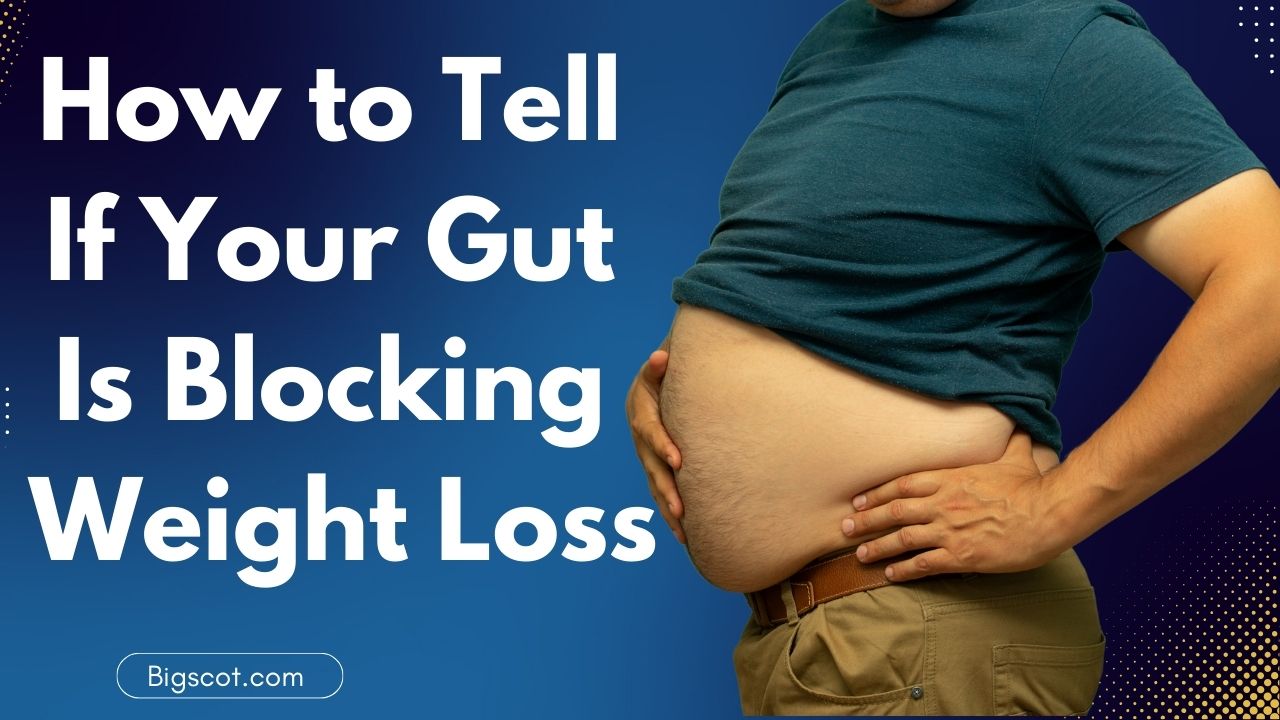Could your gut be the reason you’re not losing weight? Explore how gut bacteria, bloating, and inflammation impact fat storage—and how to fix it fast.
Introduction: The Hidden Connection Between Your Gut and Weight Loss
When it comes to losing weight, we often focus on calories, exercise, and portion control. But there’s a crucial factor that many overlook: your gut health.
Your gut is home to trillions of bacteria, known as your microbiome, that play a vital role in digestion, metabolism, and immune function. But did you know it also has a massive influence on fat storage?
If you’re struggling with bloating, uncontrollable cravings, or slow fat burn despite your best efforts, your gut could be the hidden culprit.
1. Microbiome Imbalance: The Silent Fat Blocker
Your gut microbiome consists of both good and bad bacteria. When the balance of these bacteria tips in favor of the “bad” bacteria, it can lead to inflammation, digestive issues, and ultimately, weight gain.
How Gut Imbalance Affects Weight:
- Inflammation triggers fat storage, especially around the abdomen.
- Increased appetite and cravings for sugary, processed foods due to a lack of beneficial bacteria.
- Slower metabolism, which can make weight loss feel like a never-ending battle.
If your microbiome is out of balance, your body becomes less efficient at burning fat and more prone to storing it.
2. Gut-Brain Axis: How Your Gut Talks to Your Brain
Did you know your gut communicates with your brain? It’s known as the gut-brain axis, and it plays a significant role in regulating hunger, mood, and even fat storage.
Poor gut health can disrupt this communication, leading to:
- Increased hunger, even when you’re not physically hungry.
- Sugar cravings, making it harder to stick to a healthy eating plan.
- Mood swings or stress, which triggers cortisol release and increases fat storage.
When the gut-brain axis is out of whack, it becomes harder to make mindful food choices, and your body becomes more likely to store fat, especially around your belly.
3. Bloating: The Gut’s Red Flag for Fat Loss Trouble
Bloating is a common sign of gut imbalance, and it can leave you feeling heavy and sluggish. But it’s more than just discomfort — chronic bloating can prevent fat loss by:
- Affecting digestion: Food stays in the gut longer, slowing metabolism.
- Triggering inflammation: Chronic bloating leads to inflammation, making fat-burning harder.
- Increasing water retention: Bloating often leads to temporary weight gain due to water retention.
How to Reduce Bloating:
- Eat smaller meals throughout the day to avoid overloading your gut.
- Avoid gas-inducing foods like beans, cruciferous vegetables (broccoli, cauliflower), and dairy.
- Stay hydrated, as dehydration can worsen bloating.
- Take probiotic supplements to promote a healthy balance of gut bacteria.

4. The Role of Fermented Foods and Probiotics in Gut Health
Fermented foods and probiotics are essential to healing and balancing your gut microbiome. They introduce beneficial bacteria that help crowd out the harmful ones, improve digestion, and even promote fat loss.
Best Fermented Foods for Gut Health:
- Kefir: A fermented milk drink rich in probiotics.
- Sauerkraut: Fermented cabbage loaded with healthy bacteria.
- Kimchi: A spicy Korean dish made with fermented vegetables.
- Kombucha: A fermented tea that’s great for digestion and gut health.
Probiotic-Rich Supplements:
- Look for supplements that contain a diverse range of probiotics, like Lactobacillus and Bifidobacterium strains.
- Prebiotics, which feed healthy gut bacteria, should also be considered alongside probiotics.
How Fermented Foods and Probiotics Help Fat Loss:
- Improve digestive efficiency, leading to better nutrient absorption.
- Reduce inflammation, making it easier for your body to burn fat.
- Enhance fat breakdown, allowing your body to use stored fat for energy more effectively.
5. Real Recovery Strategy: How to Heal Your Gut for Better Weight Loss
The key to unlocking effective weight loss through gut health is restoring balance to your gut microbiome. Here’s a step-by-step approach to improving gut health and finally breaking through weight loss plateaus:
How to Reset Your Gut for Fat Loss:
| Strategy | Benefits |
|---|---|
| Eat more fiber | Supports the growth of good bacteria and regulates blood sugar levels. |
| Limit processed foods | Reduces inflammation and prevents gut dysbiosis (bacterial imbalance). |
| Incorporate fermented foods | Boosts the population of healthy gut bacteria. |
| Take prebiotics and probiotics | Nourishes beneficial gut bacteria and reduces bloating. |
| Manage stress | Reduces cortisol levels, which prevents fat storage. |
| Prioritize sleep | Promotes optimal gut health and weight regulation. |
6. Bonus: Easy Gut-Healthy Recipes for Weight Loss
Gut-Healing Smoothie Recipe
- 1 cup unsweetened almond milk (or coconut milk)
- 1 tbsp chia seeds (rich in fiber)
- 1/2 cup fermented kefir
- 1/2 cup spinach
- 1/2 cup berries (low-sugar fruits)
- 1 tbsp flaxseeds (prebiotic power)
Blend together for a delicious and gut-boosting smoothie that supports digestion and fat burning.
Gut-Friendly Salad
- Mixed greens (leafy veggies)
- Avocado (healthy fats)
- Fermented sauerkraut (rich in probiotics)
- Grilled chicken or tofu (lean protein)
- Olive oil and lemon dressing (anti-inflammatory)
FAQs About Gut Health and Weight Loss
Q: How long does it take to see weight loss results after fixing gut health?
A: It typically takes 2-4 weeks for your gut health to improve significantly and for you to start noticing changes in your weight and overall well-being.
Q: Can I lose weight if I have gut issues?
A: Yes! Addressing your gut health with the right foods, supplements, and stress management strategies can lead to more efficient fat loss.
Q: Can probiotics really help with weight loss?
A: Yes. Probiotics help restore balance to your gut microbiome, reducing inflammation and improving digestion, which ultimately supports fat loss.
Conclusion: Don’t Let Your Gut Hold You Back
Your gut health has a direct impact on your ability to lose weight. By understanding how imbalances in your microbiome, gut-brain communication, and bloating can hinder fat loss, you can take the necessary steps to fix it. Incorporate fermented foods, probiotics, and a gut-friendly lifestyle to support better digestion, reduce inflammation, and make weight loss more natural.
By healing your gut, you unlock the potential for faster fat burn, better metabolism, and ultimately, long-lasting weight loss.
Struggling to lose weight despite eating right? Explore how your gut health might be the hidden factor holding you back.

